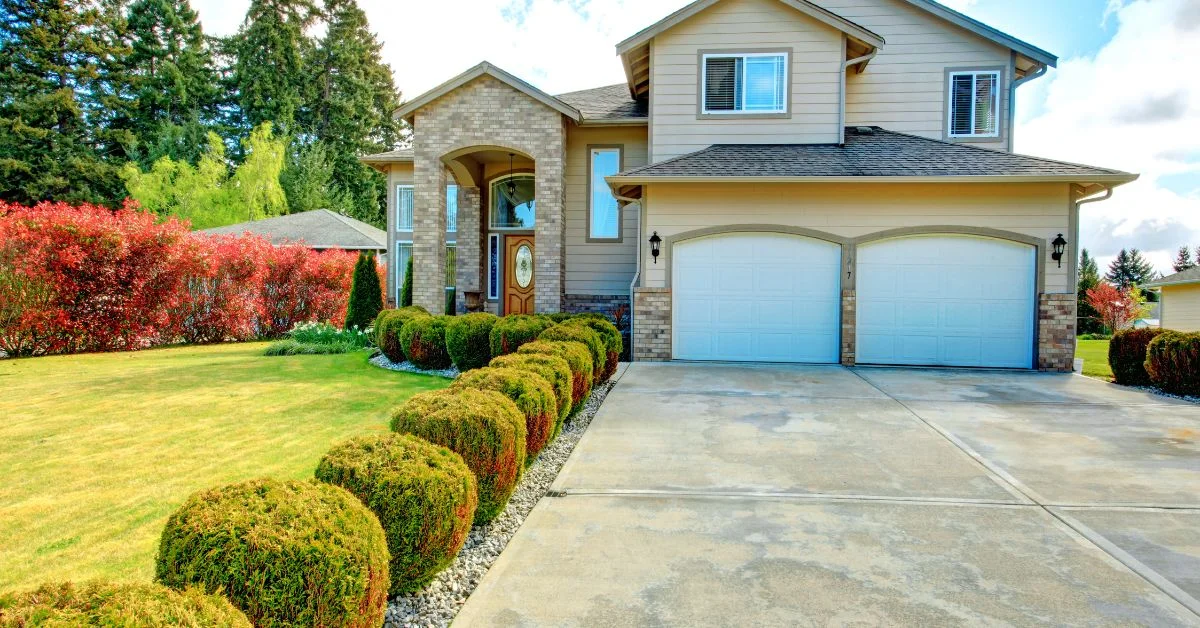When it comes to enhancing the appearance and value of a property, paving plays a significant role. Whether you’re a homeowner looking to improve the curb appeal of your house or a business owner aiming to create a welcoming atmosphere for customers, the choice of paving material can have a lasting impact. This article explores how paving influences both residential and commercial properties, focusing on its effect on curb appeal and business image.
The Role of Paving in Curb Appeal
Curb appeal refers to the attractiveness of a property as seen from the street. It’s the first impression visitors, potential buyers, or customers get when they approach your home or business. Paving is one of the most influential elements in establishing curb appeal, as it serves as the foundation for your driveway, walkway, parking lot, and other outdoor spaces.
For residential properties, a beautiful, well-maintained driveway or pathway can make a home look more inviting and well-kept. For commercial properties, a smooth, clean parking lot or entrance can convey professionalism and attention to detail. Ultimately, paving sets the tone for the overall aesthetic of the property, making it an essential factor in both residential and commercial settings.
Residential Paving: Enhancing Home Aesthetics
Residential paving isn’t just about functionality it’s also about creating an aesthetically pleasing exterior. The choice of paving material can complement the design and style of your home, enhancing its overall appearance. Whether you choose traditional concrete, sleek asphalt, elegant pavers, or rustic gravel, your driveway or walkway plays a significant role in how your home is perceived.
Popular Paving Materials for Homes
- Asphalt: Asphalt is one of the most common materials for residential driveways. It’s durable, relatively affordable, and provides a smooth surface that can withstand heavy traffic and harsh weather conditions.
- Concrete: Concrete offers a more polished, long-lasting option. Homeowners can customize it with decorative finishes, such as stamped or colored concrete, to enhance visual appeal.
- Pavers: Pavers come in various materials, including brick, stone, and concrete. They offer a high-end, customizable look that can add a sense of elegance and sophistication to a home’s exterior.
- Gravel: Gravel is often chosen for its rustic charm and lower installation cost. While it may require more maintenance than other materials, it offers a unique look that can enhance a country or cottage-style home.
Impact on Property Value
A well-paved driveway or walkway doesn’t just boost curb appeal—it can also increase property value. Real estate experts often point out that homes with well-maintained exterior spaces tend to sell faster and for higher prices. Buyers are attracted to homes that appear move-in ready, and a freshly paved driveway can make a significant difference in their perception of a property’s overall value.
Choosing the Right Paving Material for Your Home
When selecting paving materials for your home, consider factors such as the climate, aesthetic preferences, and long-term maintenance needs. Asphalt might be an ideal choice for its affordability and durability, while pavers might appeal to those seeking a custom, upscale look. No matter the choice, high-quality paving can have a lasting impact on your home’s visual appeal and overall marketability.
Commercial Paving: Elevating Business Image
For businesses, the image they project to customers is crucial to their success. Paving plays an essential role in creating a positive first impression. The condition and appearance of your commercial parking lot, entranceway, or other paved surfaces can significantly impact how customers perceive your business.
Why Paving Matters for Businesses
- Customer Perception: A clean, well-maintained parking lot or entrance tells customers that your business is organized and professional. It creates a sense of safety and comfort, encouraging people to visit and engage with your services.
- Safety and Accessibility: Well-paved areas are safer for customers to navigate, especially in high-traffic locations. Potholes, cracks, and uneven surfaces can pose a risk of injury, which could potentially lead to liability issues. Proper paving ensures that your commercial property is accessible and safe for all visitors.
Impact on Customer Experience
A smooth parking lot or clear walkway makes it easier for customers to access your business, leading to a better overall experience. For instance, a restaurant with a clean, smooth parking lot and well-marked entrances will likely make customers feel more comfortable and valued. On the other hand, a neglected parking lot with potholes or cracked asphalt can leave a negative impression, potentially deterring customers from returning.
Types of Paving for Commercial Properties
- Asphalt: This is the most common paving choice for commercial properties. It’s highly durable, cost-effective, and can handle heavy traffic loads. Asphalt provides a clean, professional appearance that suits a wide range of businesses, from retail spaces to office buildings.
- Concrete: Concrete is another popular option for commercial paving, offering a more refined look. It’s often used in areas where aesthetics matter, such as shopping malls or upscale restaurants. Concrete is known for its strength, durability, and versatility, allowing businesses to create unique designs.
- Pavers: Pavers are used for more upscale commercial properties, where appearance is a priority. They provide an elegant look and can be customized with patterns and colors to fit a business’s branding and aesthetic.
Key Factors in Choosing the Right Paving Material
When it comes to both residential and commercial paving, choosing the right material is critical to achieving a perfect balance between functionality, aesthetics, and cost-effectiveness. Here are some key factors to consider:
Durability
Different paving materials offer varying levels of durability. Asphalt and concrete are both highly durable, but concrete tends to have a longer lifespan. Pavers, while aesthetically appealing, can be more prone to shifting and damage, especially in high-traffic areas.
Aesthetic Appeal
The look of your property is just as important as its functionality. Pavers and Concrete offer a more sophisticated appearance, while asphalt may be a better choice for those looking for a more practical and affordable solution.
Maintenance
Consider the long-term upkeep of your paved surfaces. Asphalt may require sealing every few years, while concrete often needs repairs for cracks and chips. Pavers require less maintenance, but they may need to be re-leveled or replaced if damaged.
Environmental Impact
Eco-friendly paving options, such as permeable paving, are becoming increasingly popular. These materials allow water to filter through the surface, reducing runoff and promoting sustainability. Both residential and commercial property owners are embracing environmentally responsible paving solutions.
For commercial paving projects, partnering with a trusted paving company like Bulgari Paving offers asphalt repair ottawa can ensure that your surfaces remain in top condition, providing both safety and aesthetic appeal for years to come.
The Long-Term Benefits of Quality Paving
Investing in high-quality paving materials isn’t just about immediate visual appeal it also offers long-term advantages that can save you money and time in the future.
Cost Savings
While high-quality paving materials may have a higher initial cost, they require less frequent repairs and maintenance. Over time, this can lead to significant savings, as you won’t need to replace cracked or worn-out surfaces regularly.
Increased Property Value and Customer Satisfaction
For homeowners, quality paving can raise property values. For business owners, quality paving translates into improved customer satisfaction. When customers feel safe, welcomed, and impressed by the appearance of your property, they are more likely to return, resulting in long-term business success.
Conclusion
Whether you’re enhancing the curb appeal of your home or creating a lasting impression for your business, paving plays a pivotal role in shaping perceptions. The right paving material can enhance the beauty, safety, and functionality of your property, while a neglected or poorly maintained surface can have the opposite effect. By choosing quality materials and investing in professional installation, you can enjoy the long-term benefits of paving that will enhance both residential curb appeal and commercial business image for years to come.
If you find this article helpful, click here for more.









